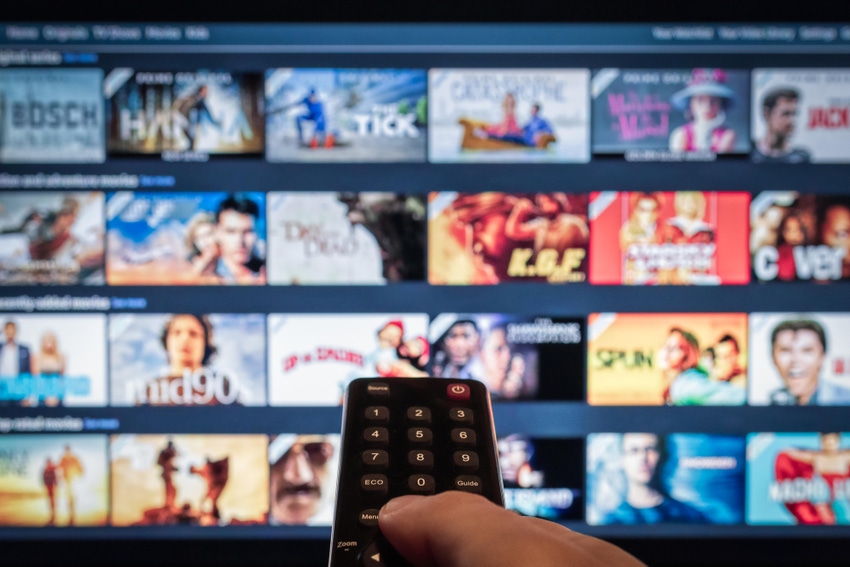Disney vs. Charter: Who came out on top?
Analysts are wondering who blinked in the new, 'transformative' deal between Disney and Charter. Most agree Charter got what it wanted but likely had to pay a price.

In the new, "transformative" distribution deal between Charter Communications and The Walt Disney Company, both sides no doubt gave something up. Quickly weighing in, analysts said Charter got most of the concessions it was seeking. However, the operator likely paid a price to pull it off.
Some of the publicly shared elements of the deal involve the Disney+ ad-supported service being included in Charter's Spectrum TV Select packages at a wholesale – rather than free – rate, and ESPN+ being provided to Charter subs on Spectrum TV Select Plus, a sports-focused package that includes regional sports networks (RSNs). Charter also held it was able to maintain flexibility to offer a range of packages at multiple price points based on customers' preferences.
That likely means that Charter can continue to sell skinny bundle packages that don't include ESPN. The operator also will no longer have to carry a select group of some of Disney's non-core cable networks such as Disney XD, FXX, FXM and Nat Geo Wild, among others.
A big piece of the deal provides clearance for Charter to make the coming ESPN flagship direct-to-consumer (DTC) service available to Spectrum TV Select subs upon launch for no added cost. The ESPN DTC component was considered "the main point of contention" in the negotiation, New Street Research analyst Jonathan Chaplin explained in a research note.
At a high level, "you have to give Charter a win, but it's not as much of a win as they would have liked," LightShed Partners analyst Rich Greenfield told CNBC.
The deal, Greenfield added, also ensures that "Disney avoids the existential collapse of ESPN." Disney is in no position to recover from losing Charter's 14 million video subs, he said.
The wholesale rate on Disney+ is significant because it could require other media companies to offer something similar when new carriage deals come about.
That element essentially becomes "table stakes" now that Disney has conceded it and will pave the way to a rebundling of sorts, Greenfield said.
Win-win?
It's possible to conclude that both sides came out with victories, MoffettNathanson analyst Michael Nathanson explained in a research note (registration required).
Charter can claim victory "[i]f the framework to make the call is an evolution of prior deals to include DTC as part of a new way to provide value to subscribers along with cutting down on long-tail cable network payments," Nathanson wrote.
But the overall economics could work out well for Disney, with an expectation that the $2.2 billion Charter is set to pay Disney in 2023 will "keep going up nicely over the multi-year agreement," he added.
Disney could likewise call it a win, with Charter reportedly paying "very strong" rate increases on its core cable networks and the retransmission of ABC, and Disney coming away with an agreement to distribute the Disney+ ad-supported tier on a wholesale basis to Charter subs, Nathanson reckoned.
But that also fits in with Charter's expectations and hopes. Charter, Chaplin noted, had expressed it was willing to pay Disney's price increases in exchange for some of the concessions the cable operator got.
Analysts also did a blow-by-blow analysis on some of the announced components of the deal.
The inclusion of the Disney+ Basic with ads service is a "win-win," according to Nathanson. Disney gets broader distribution for an ad-supported tier that managed just 3.3 million subs as of June, but Charter had to settle for a wholesale rate, he explained.
Charter is also on board to distribute Disney+, Hulu and ESPN+ (or all three in a bundle) at retail rates. That will give Disney's streaming services more exposure, with Charter likely to get a cut of new sign-ups akin to similar DTC-related deals.
Nathanson maintained that adding ESPN+ in Charter's Select Plus tier was inevitable and will likely serve as a central piece in future Disney renewals. "[W]e believed that providing ESPN+ for free to Charter's base was the most logical and palatable outcome here," he wrote.
Nathanson also pointed out that a reduction in ESPN minimum guarantees would likely trigger most-favored nations clauses with other distributors and create a "much more significant financial impact" to Disney.
"Having fought for years to improve their minimum carriage guarantees, we didn't think Disney could afford to roll-back these benchmarks across their entire Pay TV footprint," the analyst explained.
As for the removal of certain Disney channels from Charter's Spectrum TV channels, Nathanson pegged it as a win for Charter, holding that their absence on Charter's systems will cost Disney about $300 million per year in lost affiliate fees. "Like much of this deal, we anticipate this setting a precedent for similar surgical culling in all future renegotiations across the industry," he added.
What now?
It's not clear whether this short-lived skirmish between Charter and Disney will create a true tipping point in the future of video and pay-TV. But the result could give other pay-TV providers a bit more leverage the next time they negotiate a deal with Disney.
"While perhaps not a paradigm shift, this dispute will likely shift the balance of power between Charter and all programmers going forward," Chaplin wrote. "Disney had more leverage than others with ESPN, and Charter appears to have emerged from this on top. Negotiations with other programmers will be easier."
Comcast Cable, he added, will be in position to make similar demands on its next Disney deal and in future negotiations with other programmers. But the new Charter-Disney deal will also impact Comcast-owned NBCUniversal and how it negotiates the distribution of the Peacock streaming service.
Critically, the Charter-Disney deal will make it more difficult for other programmers to "double-dip" with pay-TV and their own direct-to-consumer streaming services, Chaplin wrote.
Nathanson said the new agreement also indicates that Disney will be open to offering Disney+'s ad tier through wholesale agreements and look to weave in distribution of ESPN+. In turn, that could limit the exposure of Disney's DTC services to churn while also broadening their distribution. Put together, this could set the stage for an era of rebundling and unification of the traditional video and new streaming worlds.
"While perhaps not the end of the Pay TV world as we know it, we very much can look back at this Disney/Charter deal as an opening salvo of a broader re-bundling and a step in giving customers smaller linear bundles with increased SVOD [subscription video-on-demand] functionality," Nathanson added.
As Greenfield told CNBC: "The future of streaming is about the bundle again … and less than actually being DTC."
About the Author(s)
You May Also Like












